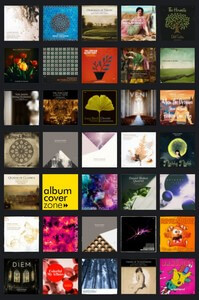
Should I put my music on Spotify, iTunes, etc.?
We know too many musicians that have been there, asked that. Having active SoundCloud accounts, busy YouTube channels, sharing their music and musicianship positively and shamelessly, sharing everything they have, while gulping with the idea of having an artist profile on Spotify, iTunes, and other platforms.
To some, it is a matter of honor to not be present on “commercial” platforms, and others just don’t feel “ready yet” for the quality of their music. We believe the “Not ready yet” pile includes musicians who heard from their colleagues and more often from sound engineers in their circles who want to keep their business up and running, that being on a mainstream music listening platform takes more than just having good music and fine designed album covers; that it requires a label. (We will get to this in a few paragraphs).
Then there is the pride that keeps the independent musicians away from the commercial platforms. With all due respect to everyone’s unique opinions, we believe for the sake of motivating the rather confused souls out there who actually want to dive into these platforms like Spotify, Apple Music, Pandora, Amazon Music, etc., dropping a line here would do good.
Social circles do have an effect on each artist’s career strategies and we have seen many artists being pulled back by their fellow musicians in order to “fight the cause” against low-paying stream services. “Because stream platforms are scamming the artists,” they say, “the artists are not getting what they deserve”. Whoever encounters opinions related to this must remember one thing; music streaming platforms are not music stores. They are the equivalents of radios that either work with the paid add fees, governmental support, or by patrons; which still falls under the same category, money comes in from somewhere, and pays the cost (monthly salary of the accountant and the refilling of the coffee filters in the radio studio’s kitchen included), and the rest goes to the musician with a percentage cut depending on how kind-hearted the management is.
Almost no music stream platform is trying to sell albums; so expecting to receive an album worth money out of one person listening to the album once simply doesn’t add up and it also doesn’t make the stream industries’ finance plan unethical. Receiving payment from the music streaming platforms is just like waiting to get paid by the “radio” in a year or two in funnily minuscule amounts. Radios often pay royalties with the assumed amount of audience per passing of music; streaming platforms pay per listening of an individual, which makes the numbers look unfortunately petite after mind-blowing calculations.
As long as we are not on the decision committee, the only thing we can do is to pass the information; today, the Billboard prize conditions count 1,250 to 3,750 streams as one album unit depending on the platforms used to listen to the songs. Do the math.
As far as the “I am not ready”, or “I am not good enough” mentality is concerned, we believe it is time for a wake-up call.
What used to be part of the duties of the commercial label, the promoter, the manager, etc., etc., is or can be shouldered by the artist today. Even the most top-notch labels can make effective decisions to leave the “promotional posts” to the hands of the artists for the sake of “authenticity” which is a valid reason that all the while lightens up the workload of the management. Such responsibility distributions between the boss and the artist are revolutionary, since only a couple of decades ago, not all but many musicians were “shaped” by the commercial labels, others were limited at times, and others picked up via newspaper ads (I assume we all know the famous “Spice Girls Wanted” post on the yellow pages, if you didn’t know Google “spice girls newspaper ad”). The list can go on as far as finding a way to design your album art (well, that’s why we are here). And distributing an album that used to be the label’s duty for centuries(!) (you get the point), can now also be shouldered by the artist as easily.
What we hear from our fellow customers and other musicians is that the percentages some commercial labels take as a cut in order to provide the online stream distribution services can reach very astronomical and ridiculous numbers. Mind that we are not talking about ALL labels, most independent labels are pretty transparent towards their artists about this sort of stuff, but if you are waiting for your moment to step into the spotlight in the online market to appear out of nowhere with a label wanting to sign you in, we say don’t wait up, just go for it.
We say go for it because if you have the content ready, and are willing to share it on SoundCloud, YouTube, and alikes for people to hear it, if you are facing commentary and criticism (as long as it is constructive, it counts), and getting better by it, it is most likely already time to step up the game. It is one of those things that if you don't do it, no one else will do it for you.
Bear in mind that Album Cover Zone is not receiving any benefit from bringing these names into this article. We are simply here to help and give you the push if necessary.
“Which distributor service should I use for my music?”
Heheh. It is a hot ground at the moment. If you go to their websites you can see the competition bleeding out onto the very first lines of the main pages of DistroKid, CDBaby, ReverbNation, LANDR, Tunecore, RouteNote, Ditto Music, and all the rest. They begin with comparisons and competitive advertising phrases that can corner you into a mental blurb of indecisiveness; believe us, we know. We won’t tell our favorite here, because choices can vary when it comes to choosing a distributor but what we say is this; you can choose on your own; you don’t need a third-party label to fill up the self-explanatory online distribution form to get your music out there to every platform available, to obtain a fancy sounding official ISRC number for your music (this most often comes automatically), to be registered as an official artist with an official music product, and often in these platforms you get to sign in your product with your own label name.
At the end of the day, what needs to be recognized is this; each of these platforms serves a group of audience that can not be found on the other platforms. Because hardly any “target audience” profile has two apps downloaded and subscribed to or two websites frequented to consume music; people usually pick one app and one website based on a decision-making process that is not in their hands. As upcoming artists who need to grow their fanbase, it is a musician’s duty to be available in any possible place to actually make a living out of your music.

Wanna make money per album without waiting to be heard from 1K to 3K? Higher up the price on SoundCloud, appear on iTunes and advertise like crazy, or sell your album in physical format to your fanbase immediately (easiest of the three options in our opinion), we are here to design the whole packaging in any format you need to sell physical copies as well, simply contact us via support@albumcoverzone.com
So, go ahead and do the research. You can do this on your own.
In the meantime, share this article, explore our catalog, pick your next album’s cover from our collection of more than 4.000 unique covers, check our newest, hottest album cover designs via https://albumcoverzone.com/new, and keep up being the amazingly hardworking artist that you are. Because if you have reached this far, you are doing your homework well.




